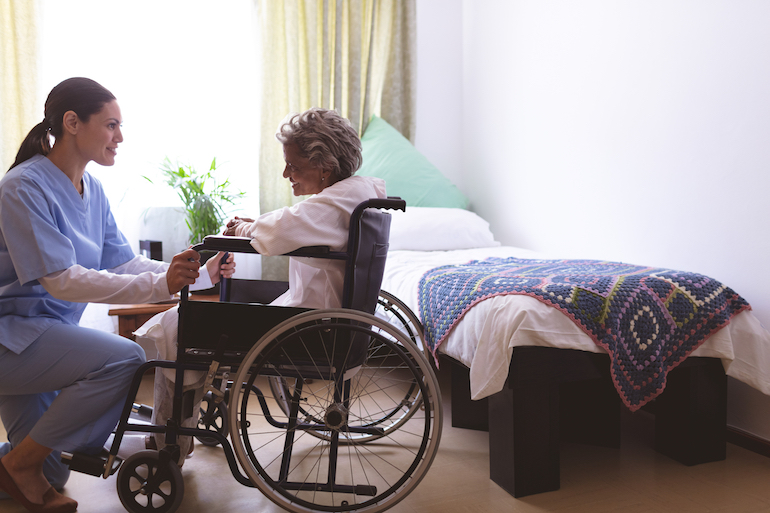Is Your Loved One Being Abused in a Nursing Home? 5 Warning Signs

Picturing an elderly parent being mistreated in a nursing home can be a family’s worst nightmare. Sadly, at least 44% of nursing home residents say they’ve been abused, and more than 90% have experienced neglect. While you want your loved one to be safe, you can’t be there all the time. Consequently, it’s important that families and advocates learn the warning signs of nursing home abuse and neglect.
What is the Difference Between Abuse and Neglect?
Nursing home abuse takes a variety of forms. One clear-cut instance is when a staff member hits a resident. However, abuse is not always that obvious. A more subtle example might be an aide who punishes a resident by withholding dessert.
Nursing home neglect is another form of abuse. It is considered neglect when a caregiver fails to do something essential to a resident’s health and safety. For instance, if a person is likely to choke on their food, failing to provide mealtime supervision constitutes neglect.
Examples of Nursing Home Abuse and Neglect
- Physical abuse such as hitting or shoving
- Sexual abuse, ranging from unwanted attention and touching to rape
- Emotional abuse such as scolding or withholding affection or privileges
- Improper use of restraints
- Failing to take care of a resident’s personal hygiene
- Stealing a resident’s possessions or money
- Failing to provide proper nutrition and hydration
- Failing to provide necessary medication and medical treatment
- Allowing a resident to wander the premises without proper supervision
5 Signs of Nursing Home Abuse and Neglect
If your family member can understand and answer questions, ask if anyone on the staff has ever hurt them. For residents who cannot articulate or are reluctant to talk, watch for the following signs of nursing home abuse and neglect:
- Unexplained bruises or injuries. These can be a sign of physical abuse. So can frequent doctor visits or unjustified trips to the emergency room.
- Bedsores. Residents can develop these pressure sores when caregivers leave them in the same position for too long. Bedsores, which are often a sign of neglect, can become infected and lead to more serious health problems.
- Poor hygiene, including clothing and bedding. Unwashed hair or soiled clothes or bed linens are signs of neglect. An unkempt room or dirty bathroom is another sign. Residents in facilities with inadequate hygiene practices are more likely to become ill.
- Anxiety, depression or fearful behavior. Residents who exhibit these symptoms may be experiencing some kind of abuse, physical, emotional or sexual. Notice how the person reacts to various caregivers on the nursing home staff. Do they seem to be afraid of certain people? Refusing to participate in social activities or see family and friends may also be a sign of nursing home abuse.
- Unexplained illness, infections, confusion or weight loss. These can be signs the person is being neglected. They may not be receiving necessary food, water or medical care. If someone is suddenly acting confused, it could be a symptom of dehydration rather than dementia.
Abuse and Neglect May Be Unintentional
Caregivers may neglect residents unintentionally because they are overworked or improperly trained. According to Illinois law, a nursing home can be found guilty of abuse and neglect even if the harm was not deliberate. If you suspect a family member is being abused or neglected in a nursing home, call us immediately. We’ll help keep your loved one safe while we fight to win the compensation your family deserves.
Nursing home abuse law is complicated, but finding the right lawyer is simple.
Call 1-800-MALPRACTICE today for a free, no-obligation consultation.
Do You Have a Case?Sources:


